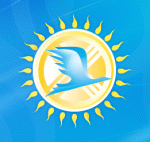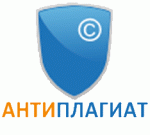-
Speciality Code:
6B06102
Speciality Name:
Computer hardware and software
Faculty:
Faculty of Finance, Logistics and Digital Technologies
Field of study:
Information and communication technologies
-
Contingent of students on the educational program159Students, studying at the expense of budget funds10Students, receiving personal grants, scholarships0Foreign students, studying on this program1Students, who took part in the academic mobility programs:28- inside the country28- outside Kazakhstan0
- A) OP goal
- Training of innovative specialists in IT technologies, the objects of professional activity of which are a set of means, methods and methods of human activity, aimed at creating and using software developments, hardware and software of computer systems in solving social and professional problems in the context of the implementation of the State Program Digital Kazakhstan..
- B) Characteristic
- 1.Discipline / subject area
- The main disciplines:
- Tion algorithms and programming basics System Programming Tools Application Development Programming in high level language ah Internet -.... Technologyorganization of computing systems and networks, information security basedmanagement ie quality of software development....
- 2.General information/
- Specialization
- Web-programming. Mobile technology
- 3.Direction
- technical
- 4.Features
- The training program of bachelors on a specialty "Computer Science and Software" designed to prepare highly educated students, and is based on the competencies in various technical fields, and on the experience in the field of computer technology. Exchange programs are designed to form the skills Ineeded for the development, installation and support of computer systems and networks, software, information management systems, integrated processing systems and data management. The program is an applied nature of learning.
- C) Employment and further training
- 1.Employment
- The graduates of this degree can perform on objects of professional activity of the following functions: the design of operational and information systems, their operation, including administration of systems and networks, maintenance of information systems, testing systems. They can work in the field of information technology, companies specializing in the production of computer, hardware and software, enterprises and organizations of all kinds, use of information systems and computer networks for the internal processes of production and management company.
- 2.Further training
- Upon completion of training in high school student - graduate has an opportunity to continue education in the Master's way tional program 6M070300 -. Information s system T akzhe graduate can continue their education on the agreed master programs with partner universities in the framework of the network of the University of Shanghai Cooperation Organization (SCO) in IT-directions to produce two diplomas: Astrakhan state University, St. Petersburg national research University of information technologies, mechanics and optics, Novosibirskog of state University.
- D) Style education
- 1.Approaches to learning and teaching
- The training process uses modern teaching technologies: credit education technology, distance learning, interactive methods, student-oriented learning, competence-based approach. Apply the following teaching methods: video lectures, lecture - together, the brain - rings, business games, project method,problem th Lecture I, playing techniques, "Custom Game", "Exam in class","Rivals".
- During the training sessions teachers of the department use a problem-oriented packages, databases, training systems, graphics software, testing systems and electronic books.
- 2.assessment methods
- To assess students 'competencies using different methods of control of knowledge, skills and determination of students' skills. The university has Intrahigh system of quality control of student learning, including the current, mid-term, intermediate and ito traction state control of students' knowledge.Assessment methods: oral questioning, written tests, colloquiums, presentations, homework, reports on the implementation of laboratory work, their protection, individual assignments, training, tests, etc.
- From 2014-2015 uch. year students of the specialty "Computers and Software"are external evaluation of educational achievements (TDMA).
- Software competence
- 1.General competence
- The program complies with the requirements of the State educational standard of education "HigherEducation." Bachelor "," to ensure the quality of academic programs in the first cycle level.
- The program includes general competence (also known as key skills) expected of graduates of the first cycle (see the web site http:. // Adilet zan kz / rus / docs / P 1200001080..).
- Listed below are a summary of competence and the competence of the most characteristic for this program:
- the ability to apply the methods and means of knowledge, learning and self-control for intellectual development, raise the cultural level, the acquisition of professional competences;
- mind of combining theory, practice and methods for solving professional problems, the ability to practice the methods of humanitarian, environmental, social and economic sciences in a variety of professional and social activities;
- possession of skills of independent, creative work, the ability to organize their work, the ability to generate new ideas, to find approaches and implementations;
- demonstrate basic general knowledge in the field of computer technology and software oblespecheniya;
- the student's ability to reflect and the ability to e yvat describe, analyze and synthesize information Vat,critically evaluate Performan work and research, linking theory with practice;
- ability to build oral and written language, the acquisition of knowledge in your country of tary and foreign languages;
- be aware of the trends and prospects of development of modern information technologies;
- possession of computer skills and knowledge of information technology;
- ability to solve problems, to think rationally, to take into account, to predict, to provide, to compare and draw conclusions;
- development of skills of experimentation and research in the field of study, information management.
- 2.Spezi fi c competencies:
- ability to carry out the design and operation of th system and application software and hardware;
- creation and administration of local and corporate systems and networks;
- the ability to program in modern algorithmic languages;
- ability to carry out aggregation of hardware and software, the layout of computer systems, systems andnetworks;
- skills of designing the architecture of software and hardware components;
- ability to create components of the computer systems of information processing and management, the production of programs and software systems and the set of qualities;
- ability to work with databases;
- Vlade of professional methods of information protection;
- ability to install existing software products, customized to the specific needs and maintain their operation;
- ability to carry out testing and debugging of hardware and software;
- ability to develop algorithms for the solution of engineering problems;
- Master the skills of systems engineering, certification of hardware and software;
- the ability to evaluate the reliability of software and hardware;
- ability to analyze business processes and build diagrams with UML;
- ability to develop Web applications in today's environment.
- F) A complete list of results for this training program
- In the context of student professional practice in work organization as well as with clients, graduates can demonstrate the ability of the following:
- be able to develop and design elements of mathematical, information and software domain objects;
- to design distributed applications, as well as the system in the language of UML;
- to carry out testing and debugging of software systems and networks, administration, computing and software systems, and networks;
- carry out planning and design, production and technology, experimental research, orginizatsionno-managerial and operational activities;
- use modeling languages to study and design of computer information processing and control systems and their subsystems;
- analyze the security conditions and the choice of technical and organizational measures for the security of information;
- to create software products that operate and modernize develop innovative projects.
- In the context of student professional practice in work organization as well as with clients, graduates can demonstrate the ability of the following:
| The extent and duration | Bachelor's degree, 240 credits |
| institution | Karaganda University of Kazpotrebsouz |
| Accreditation | Certificate of completion of specialized accreditation IQAA No. KZ34LAA00021414(005) dated February 2, 2021 |
| C Validity | 12/23/2019– 12/20/2024 |
| Level | Bachelor's degree |





